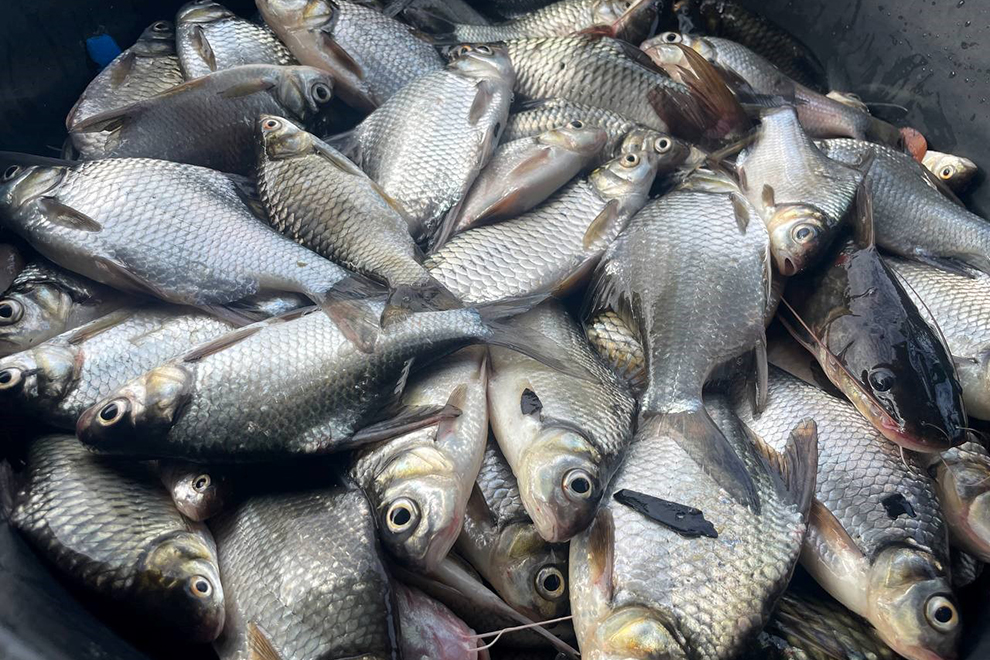
The farms produce catfish and silver barb, which are ideal for smoked fish production and are easy to raise. NatureLife Cambodia
Floating fish farms on the Tonle Sap Lake are creating new income opportunities, conserving biodiversity and preserving the area's fragile ecosystem. Ten new floating fish farms are being established, and will support ten fishing families, with the goal of reducing their heavy reliance on natural fish stocks and promote sustainable practices.
The new farms will complement 13 existing facilities, which were established by NatureLife Cambodia, funded by the Critical Ecosystem Partnership Fund (CEPF), in June 2024. Located in the Toul Neang Sav Plov Loung Protected Area in Kampong Thom province’s Kampong Svay district, their establishment saw community members provided with fish stock, feed and extensive aquaculture training.
San Sineang, a project manager at NatureLife Cambodia, highlighted how the project integrates conservation principles with community participation.
“We’ve implemented a nine-point framework to reduce fishing pressures and illegal activities that threaten biodiversity in the region. Additionally, we encourage biodiversity monitoring and promote sustainable practices,” he said.
The farms not only supply fish to local markets but also help curb overfishing, which poses a significant threat to the lake's biodiversity and ecological balance. Community members contribute 30 per cent of the total costs as part of a co-financing strategy to ensure their active involvement and commitment, according to NatureLife Cambodia.
A women’s enterprise involving 13 households has launched a fish-processing initiative under the brand “Tonle Fish”, a biodiversity-friendly smoked fish producer which supplies local and Phnom Penh markets. This initiative is managed by the Toul Neang Sav Plov Loung community, and has received recognition from the Ministry of Environment for its efforts in biodiversity conservation and community engagement.

The enterprise reinvests 5 per cent of its profits into local conservation efforts, while over 70 per cent of its members and leaders are women, demonstrating the programme’s role in empowering women and fostering leadership.
Tonle Fish promotes local fish processing, sustainable practices and clean water use in the Tonle Sap region. These initiatives are critical in communities where 83 per cent of residents live below the poverty line, and 90 per cent depend entirely on fishing for survival.
The project prioritises sustainable livelihoods, selecting aquaculture and dried fish production as key strategies. With these floating farms, two key fish species were selected: catfish and silver barb, which are ideal for smoked fish production and are easy to raise.
Sineang said supported by CEPF, the project is set to run until May, with plans to expand the number of floating farms to include 10 more families, with funding from Oxfam.
The Ministry of Agriculture, Forestry and Fisheries has also encouraged studies on sustainable aquaculture practices to reduce reliance on wild fish stocks and curb illegal fishing activities in the Tonle Sap Lake.
These collaborative efforts underscore the importance of integrating conservation with sustainable development to preserve the Tonle Sap's unique biodiversity and support the livelihoods of its communities.











